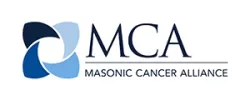AONN+ Blog
Survivorship Care Must Include Quality of Life for Patients
For more than a century, cancer care had a singular goal―to have the patient survive the disease and its treatment. With that achieved, the treatment team smiled, considering the treatment a success. Times have changed, and thankfully, treatments have changed, too.
Promoting Self-Management for Cancer Survivors
While patients with cancer are actively receiving treatment, their navigators are in frequent contact with them, making sure they have and keep their appointments; remain on track for tests, scans, and other consultations; and the list goes on. When treatment is completed, patients receive a treatment summary and survivorship care plan, and then what?
Commission on Cancer Standard 3.3 - Survivorship Care Plans
I was privileged to chair a task force for the purpose of revisiting this standard and determining what issues lay within it that are barriers to cancer centers being able to achieve it. Upon the creation of such recommended changes, another task force for which I also served, reviewed these recommendations, and, I am pleased to say, approved them. Hot off the press, here is information that you get to hear even before it is announced to accredited facilities.
Preventing Family Interference with Treatment Decisions When a Loved One Has Metastatic Disease
For those navigators caring for patients with advanced cancers, you have probably witnessed what I have—the patient wanting to stop treatment and the family (young husband or adult children) wanting to do an end run to the medical oncologist and say, “We want her to continue treatment and not give up. She is a candidate for drug therapy XYZ. I will talk her into continuing treatment.” And what happens?
Navigators: Communicating Your Role
Although patient navigation services are becoming more common at cancer programs nationwide, physicians and administrators still frequently ask, “What are the responsibilities of the navigator?”
Talking with Oncology Patients About Clinical Trials
One of the best roles a nurse navigator can incorporate into her daily routine when seeing a newly diagnosed patient is to begin educating the patient about clinical trials. All too often, patients associate the phrase “clinical trials” with “experimentation,” and, of course, this is not the case.
Breast Cancer Awareness Month
It’s here! October—National Breast Cancer Awareness Month—although honestly, this type of cancer is very much in the public eye throughout the year. Breast cancer survivors, those at risk, and families who have lost a loved one to this disease have made it their charge to keep a pink theme year round.
Navigation Metrics and Value-Based Care
Ms. Strusowski recently co-authored an article on “Patient Navigation Metrics” for Oncology Issues, the journal of the Association of Community Cancer Centers. In this guest blog post, she explores this topic in the context of value-based care.
Navigation Documentation Tools Can Support Compliance with Commission on Cancer Standards
Documentation by oncology patient navigators can play an important role in your cancer program’s efforts to comply with the new Commission on Cancer (CoC) Standards that became effective in 2015. This blog reviews documentation-tool compliance—in other words—how your documentation tools can help you demonstrate compliance with CoC Standard 3.1 Patient Navigation Process and Standard 3.2 Psychosocial Distress Screening.
Preparing Survivors for Late Effects of Cancer Treatment
When patients are newly diagnosed with cancer, their focus is on getting the cancer out of their bodies. They may not be listening as well as they might under less stressful circumstances. This can result in an inability to absorb and comprehend all the information provided to them related to side effects from various treatments.
Thank You to Our Corporate Sponsors and Alliance Partners!
-

Major Corporate Sponsor
-

Patron Corporate Sponsor
-

Patron Corporate Sponsor
-

Patron Corporate Sponsor
-

Industry Relations
Council Member -

Industry Relations
Council Member -

Industry Relations
Council Member -

National Alliance Partner
-

National Alliance Partner
-

National Alliance Partner
-

National Alliance Partner
Privacy Notice | Terms of Use
© 2009- DBA AONN+ Academy of Oncology Nurse & Patient Navigators® | PO Box 563, Cranbury, NJ 08512 |
AONN+ DBA AONN+ is a 501(c)(6) organization under federal tax guidelines. AONN+ Foundation for Learning, Inc. a 501(c)(3) organization under federal tax guidelines.
AONN+ Advantage, LLC, a wholly owned subsidiary of AONN+.



